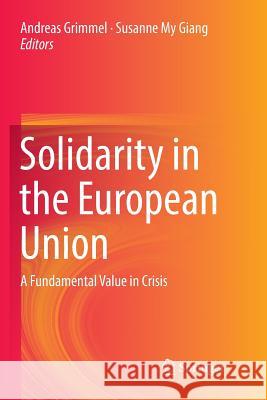Solidarity in the European Union: A Fundamental Value in Crisis » książka
topmenu
Solidarity in the European Union: A Fundamental Value in Crisis
ISBN-13: 9783319860626 / Angielski / Miękka / 2018 / 175 str.
Kategorie BISAC:
Wydawca:
Springer
Język:
Angielski
ISBN-13:
9783319860626
Rok wydania:
2018
Wydanie:
Softcover Repri
Ilość stron:
175
Waga:
0.27 kg
Wymiary:
23.39 x 15.6 x 1.02
Oprawa:
Miękka
Wolumenów:
01
Dodatkowe informacje:
Wydanie ilustrowane











